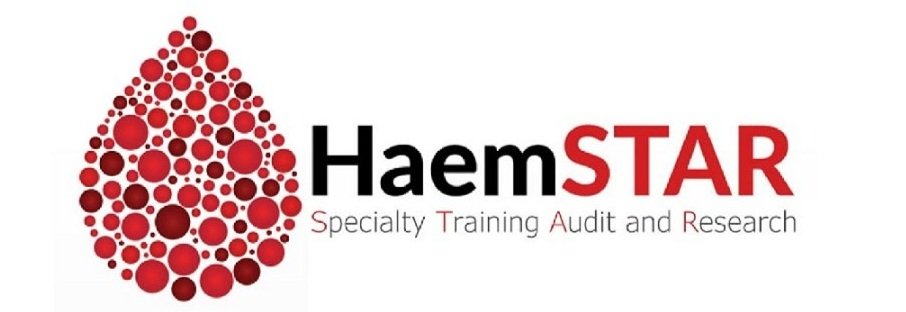The Woes and Wonder of Immunohaematology in the United Kingdom
In recent years there has been an increasing expansion of haematologists with an interest in immune-mediated disease within the classical haematology world. This has been driven by an increased knowledge of these conditions and novel targeted treatments that are now available. However, it has become apparent that an abundance for some conditions is balanced by limitations for others.
First, let us start with the wonders: thrombotic thrombocytopenic purpura (TTP) and immune thrombocytopenia (ITP). TTP is a devastating and life-threatening diagnosis albeit a rare one. In the last year, NHS England has recognised this with the development of a national TTP framework providing regional access to 24-hour plasma exchange services by experts in its diagnosis and treatment. The use of caplacizumab, a nanobody that reduces von Willebrand factor-platelet binding, has been approved with the TITAN and HERCULES studies showing improved outcomes when added to plasma exchange and immunosuppression. The use of rituximab in treating sub-clinical ‘ADAMTS13’ relapses has also become standard of care in the UK TTP Network. Results from the nationwide UK TTP registry and on-going recruitment in the UK-led ERTTP study will give clinicians further information on dosing options.
ITP is likely to be the most common condition faced by the immunohaematologist. It still lacks a specific diagnostic test but due to its higher incidence, clinicians have more experience and are comfortable in its treatment. Refractoriness or loss of response is one of the key concerns for clinicians but the arsenal of therapies available to treat the condition has increased over the last decade. The TPO receptor agonists, romiplostim, eltrombopag and avatrombopag, as well as rituximab are now being used earlier and with greater confidence. Fostamatinib, a SYK inhibitor, has recently been approved by NICE and the HaemSTAR-supported FLIGHT study gave support for the early use of mycophenolate with steroids at the time of diagnosis. A combination of better clinical data for ‘old-fashioned’ drugs and the industry development of new targeted therapies has helped to transform the list of treatment options. Excitingly, HaemSTAR is now working with industry to trial novel immunosuppressants in this space.
Let us now turn our heads to the woes: antiphospholipid syndrome (APS) and acquired haemophilia A (AHA). APS is a prothrombotic condition causing venous and arterial thromboses as well as obstetric morbidity. Its problems at present lie in several areas: 1) its multi-headed nature making clinical or surrogate end-points difficult to assess in clinical trials, 2) poor outcomes in anticoagulation studies, and 3) the lack of a clear molecular target. Assessing the surrogate markers of thrombin generation assays in the TRAPS study comparing warfarin to rivaroxaban, failed to translate into safe patient outcomes. DOACs have become the standard of care in the 2020s for treating venous thromboembolism in the UK however due to the findings from the TRAPS study, warfarin still remains the preferred anticoagulant for APS. Similarly, varying forms of immunosuppression have yet to show clear benefit. The HaemSTAR supported A2PLS audit has provided a snapshot of current practice in the UK and publication is eagerly awaited. Although there is recognition that β2-glycoprotein plays a key role in the condition, antibodies to the protein are not seen in all patients and its physiological and pathogenic role are still poorly understood. These issues remain a key barrier to the treatment of this disease.
Finally, acquired haemophilia A (AHA). Similar to TTP, this is rare but treatment options are less well tested and the field is plagued a lack of prospective data. Control of bleeding and immunosuppression are key. Rituximab has shown some benefit for AHA, similar to other immune-mediated conditions, but large multi-centre data has yet to be presented and the risk of subsequent relapse is less clear. The EACH2 Registry helped to give better understanding of the impacts of cyclophosphamide and steroid for the disease. Factor VIII bypassing agents including FEIBA and recombinant factor VIIa, are used but they are non-specific, can be problematic to administer, and there is a lack of experience in non-specialist haemostasis centres; surely, these must impact upon patient outcomes. Emicuzimab, a bivalent FVIII-mimicking monoclonal antibody, has revolutionised the bleeding experience of patients with cogenital haemophilia A with inhibitors. However, despite anecdotal evidence and case reports, industry-supported prospective studies for AHA have yet to materialise. It is only in Japan that emicizumab is licences for AHA.
Going forwards there is a clear need to better understand the underlying disease processes in these conditions in order to develop targeted therapies. Along with this, clinicians need to be able to engage with industry to improve the treatment of these rare or neglected conditions. However, it takes many years drug development to bring these therapies from bench to bedside. Developing clinical care networks to support research in immunohaematology has shown benefit in some of these diseases. Surely, this must be applicable to others on a national scale to focus clinical research questions, rationalise currently available treatments and improve patient outcomes.



